Nose Surgery in Germany
Search and Compare the Best Clinics and Doctors at the Lowest Prices for Nose Surgery in Germany

Find the best clinics for Nose Surgery in Germany
With Medijump you can browse 14 facilities offering Nose Surgery procedures in Germany. The cheapest price available is $2,044 in Berlin. And for the cheapest price globally, prices start from $101 in Poland.
Nose Surgery in Berlin
Price: $ 2,044
Poland offers the best prices Worldwide
Price: $ 101
From 47 verified reviews
ci öz, 13 July 2020
A huge compliment and thank you to Frau Kalinova and her team. This doctor has real magic hands 😍 She is highly professional and very sensitive always does her best. Was with some doctors for consultations from cheaper to more expensive, but no one can reach the level and the skills of this doctor. Thank you for everything Mrs. Kalinova
From 80 verified reviews
G. E., 19 September 2020
Haben eine Hautinfektion schnell in den Griff bekommen. Der Verlauf wurde sehr gut prognostiziert, so dass wir wussten was noch kommt. Nehmen sich Zeit. Stelle mir so einen Arztbesuch vor.
From 163 verified reviews
nuster, 22 September 2020
We have been to the hospital 3 times because of our daughter.The first time was the birth, labor started early which ultimately led to a premature birth (6 weeks too early). My wife was treated very well on the ward, but the food was really bad ... I eat pretty much everything and I am not very squeamish, but the food was really below average.Since our little one was premature and had difficulties starting, she had to be ventilated intensively and with oxygen in the incubator.The sisters were all nice and competent, the approach to our child was great (changing diapers, wearing the right ones, etc.)Really recommend it.At about 1.5 years our little one had suspected Chassaignac paralysis ... Truly no acute emergency (but in need of treatment) and something seems to forget many patients ... You are not always a life-threatening emergency !!Waiting time a good 4 hours, treatment was good.With about 2.3 years new suspicion of a Chassaignac paralysis, same as before. Arm in position and you shouldn't touch the arm. Waiting time about 30 minutes, again good and fast treatment and again about 20 minutes waiting for a doctor called.A recommended clinic.And if others understood what an emergency room is and what you go with, almost all 1 star ratings would be dropped
From 147 verified reviews
conny Schmelzer, 13 September 2020
Kudos to the outpatient surgery station, everything was explained, very nice team, I felt very well looked after. I was met by very friendly nurses at Ward 15. The further care on the ward is also very, very pleasant.
From 166 verified reviews
Martin xxx, 22 September 2020
Von Anfang bis Ende sehr freundliche und kompetente Mitarbeiter.
University Hospital of Munich (LMU), located in Professor Huber Platz, Munich, Germany offers patients Nose Surgery procedures among its total of 223 available procedures, across 26 different specialties. Currently, there's no pricing information for Nose Surgery procedures at University Hospital of Munich (LMU), as all prices are available on request only, whilst the national average price is approximately ฿127,174. There is currently a lack of information available on the specialists practicing at the Hospital, and they are not accredited by any recognized accreditations institutes
Dr. Onno Frerichs - Plastic Surgery, located in Bismarckstrasse, Berlin, Germany offers patients Nose Surgery procedures among its total of 28 available procedures, across 3 different specialties. Currently, there's no pricing information for Nose Surgery procedures at Dr. Onno Frerichs - Plastic Surgery, as all prices are available on request only, whilst the national average price is approximately $3,534. All procedures and treatments are undertaken by just a small team of specialists, with 3 in total at the Hospital, and they are accredited by AAPS - American Association of Plastic Surgeons
Praxis Dr. Moheb, located in Holstenstrasse, Hamburg, Germany offers patients Nose Surgery procedures among its total of 14 available procedures, across 3 different specialties. Currently, there's no pricing information for Nose Surgery procedures at Praxis Dr. Moheb, as all prices are available on request only, whilst the national average price is approximately $3,534. All procedures and treatments are undertaken by the lead specialist at the Hospital, and they are accredited by VDÄPC - Vereinigung der Deutschen Ästhetisch-Plastischen Chirurgen
S-thetic Lounge Cologne, located in Grosse Brinkgasse, Cologne, Germany offers patients Nose Surgery procedures among its total of 40 available procedures, across 5 different specialties. Currently, there's no pricing information for Nose Surgery procedures at S-thetic Lounge Cologne, as all prices are available on request only, whilst the national average price is approximately $3,534. All procedures and treatments are undertaken by just a small team of specialists, with 3 in total at the Hospital, and they are accredited by DGPRÄC - Deutsche Gesellschaft der Plastischen, Rekonstruktiven und Ästhetischen Chirurgen
Chirurgia Ästhetica, located in Bismarckstrasse, Berlin, Germany offers patients Nose Surgery procedures among its total of 12 available procedures, across 1 different specialties. The cost of a Nose Surgery procedure starts from $4,084, whilst the national average price is approximately $3,534. All procedures and treatments are undertaken by just a small team of specialists, with 2 in total at the Hospital, and they are not accredited by any recognized accreditations institutes
University Medical Center Hamburg-Eppendorf, located in Eppendorf, Hamburg, Germany offers patients Nose Surgery procedures among its total of 288 available procedures, across 30 different specialties. Currently, there's no pricing information for Nose Surgery procedures at University Medical Center Hamburg-Eppendorf, as all prices are available on request only, whilst the national average price is approximately ฿127,174. There is currently a lack of information available on the specialists practicing at the Clinic, and they are accredited by ISO 9001:2008
Dr. med. Afshin Moheb, located in Holstenstrasse, Hamburg, Germany offers patients Nose Surgery procedures among its total of 15 available procedures, across 3 different specialties. Currently, there's no pricing information for Nose Surgery procedures at Dr. med. Afshin Moheb, as all prices are available on request only, whilst the national average price is approximately $3,534. All procedures and treatments are undertaken by just a small team of specialists, with 2 in total at the Hospital, and they are accredited by VDÄPC - Vereinigung der Deutschen Ästhetisch-Plastischen Chirurgen
GermanyHealth, located in Mazaristrasse, Munich, Germany offers patients Nose Surgery procedures among its total of 30 available procedures, across 6 different specialties. Currently, there's no pricing information for Nose Surgery procedures at GermanyHealth, as all prices are available on request only, whilst the national average price is approximately $3,534. All procedures and treatments are undertaken by the lead specialist at the Hospital, and they are not accredited by any recognized accreditations institutes
Praxis Fur Plastische Chirurgie, located in Bismarckstrasse, Berlin, Germany offers patients Nose Surgery procedures among its total of 26 available procedures, across 1 different specialties. Currently, there's no pricing information for Nose Surgery procedures at Praxis Fur Plastische Chirurgie, as all prices are available on request only, whilst the national average price is approximately $3,534. There are many specialists available at the Hospital, with 8 in total, and they have multiple recognized accreditations, including: VDÄPC - Vereinigung der Deutschen Ästhetisch-Plastischen ChirurgenDGPRÄC - Deutsche Gesellschaft der Plastischen, Rekonstruktiven und Ästhetischen Chirurgen
- Home
- Germany
Compare Before & After Photos of _procedure_photos.phpNose Surgery
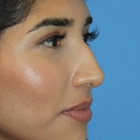
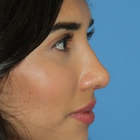
Full-side view
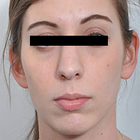
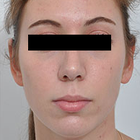
Front view
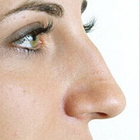
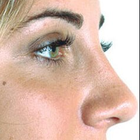
Full-side view
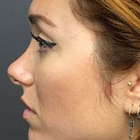
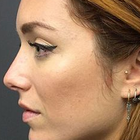
Full-side view
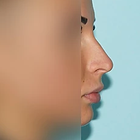
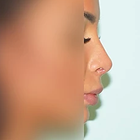
Full-side view
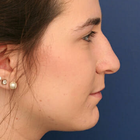
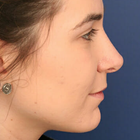
Full-side view
WHY US?
At Medijump, we're making medical easy. You can search, compare, discuss, and book your medical all in one place. We open the door to the best medical providers worldwide, saving you time and energy along the way, and it's all for FREE, no hidden fees, and no price markups guaranteed. So what are you waiting for?

Free

Best Price

Widest Selection

Risk-Free
What you need to know about Nose Surgery in Germany
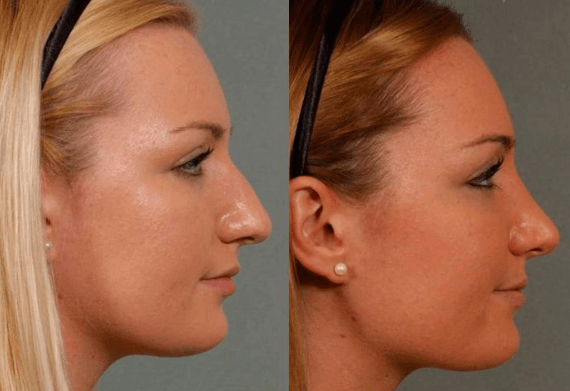
Commonly referred to as a Rhinoplasty, it is the medical term for reshaping of the nose or corrective surgery of the nose. It is one of the most common facial plastic surgeries (Facelift) procedures performed. Nose surgery can be performed to change the consequence of genetics, birth defect or nasal injury. It can be performed to enhance the appearance and/or to improve nasal breathing.
Surgery can be performed to correct nasal humps, the curvature of nose-bridge, nose tip irregularities, and asymmetry in the nostrils. The nasal appearance can be altered in various ways using intra-nasal chisels. Nose surgery procedures generally fall under three types: open rhinoplasty, closed rhinoplasty, and tip rhinoplasty. Rhinoplasty is normally performed under general anesthesia and will not leave any visible scars on the nose.
What does a Nose Surgery Procedure Involve?
Nose surgery is an individualized surgery. Before the surgery, you will need to discuss important factors with your surgeon to determine if it is suitable for you. Your surgeon will review your medical history, including your previous surgeries, medical conditions, and any medications you are taking. You will need to have a complete physical examination, such as blood tests. Your surgeon will also consider your other facial features, the skin on your nose, and what you would like to change or correct. Then, your surgeon will develop a customized plan for you. Two weeks before and after surgery, avoid any medications that contain aspirin or ibuprofen, such as Advil and Motrin IB because these medications can increase bleeding. You will need to also stop taking herbal remedies and over-the-counter supplements. If you are an active smoker, stop smoking because smoking can slow your healing process and increase the risk of getting an infection.
During the actual surgery, you will be given either local anesthesia or general anesthesia. The type of anesthesia depends on how complex the surgery is and what the surgeon would prefer to use. Then, the surgery will start by making incisions inside your nose or at the base of your nose between your nostrils. Your surgeon will reshape the inner bone and cartilage underneath your skin to make a more pleasing appearance.
There are several ways to change the shape of your nasal bones or cartilage, depending on your nose’s structure and how much needs to be removed or added. If only small changes are required, your surgeon may use cartilage taken from deeper inside your nose or your ear. However, for a much larger change, your surgeon may use cartilage from your rib, implants, or bone from other parts of your body. When the changes are finished, your surgeon will place the nose’s skin and tissue back. The incisions will be closed by stitches.
How Long Should I Stay in Germany for a Nose Surgery Procedure?
If everything goes well, you can go back to your hotel on the same day once the effects of anesthesia wear off. However, you will need to stay in a recovery room for a few hours so the staff can monitor you. Some people may need to stay in hospital overnight. After you are discharged from the hospital, you will need to stay in Germany for at least 10 to 14 days for initial recovery, follow-up checkups, and for the stitches to be removed.
What's the Recovery Time for Nose Surgery Procedures in Germany?
The recovery period for nose surgery can be different from person to person. In general, 2 to 3 weeks is needed until you can get back to your full normal routine and 3 to 6 weeks until you can do any strenuous activity. However, you should be able to go back to work within a week, except if your job requires strenuous physical activity. You will feel gradually better each day in the first week. You will experience swelling, which can take six months to subside. The only people who will notice the swelling is you and your surgeon. Your final nose shape will be apparent after it is completely healed.
What sort of Aftercare is Required for Nose Surgery Procedures in Germany?
After the surgery, you may need to wear a nasal splint for the first week. The splint is used to protect and support your nose. Your nose may be congested due to swelling or from the nasal splint. You need to rest in bed with your head raised higher than your chest to reduce bleeding and swelling. For a few days after the surgery, you may also experience slight bleeding and drainage of mucus. Your surgeon may place a “drip pad” under your nose to absorb drainage.
Your surgeon may ask you to avoid strenuous activity, take baths instead of showers, avoid blowing your nose, eat high-fiber foods to avoid constipation, not to do any facial expressions (smiling or laughing), not wearing pull clothing and wear button-downs instead.
For at least several weeks after the surgery, do not rest eyeglasses or sunglasses on your nose to prevent pressure. You should also wear SPF 30 sunscreen when you are outside because too much sun can cause permanent irregular discoloration to your nose. Do not put anything such as ice or cold packs on your nose even though it is swelling as the swelling will go away faster by limiting your dietary sodium.
What's the Success Rate of Nose Surgery Procedures in Germany?
Nose surgery is known to have around 80% to 90% success rate. Nevertheless, just like any other surgery, it still has possible risks and complications. These risks are bleeding, infection, numbness, permanent nerve damage, and an adverse reaction to the anesthesia. You should call your surgeon immediately if you suspect any of the symptoms. Other possible risks are difficulty breathing through your nose, uneven-looking nose, persisting pain, swelling, and discoloration, scarring, septal perforation, and the need for a second or third surgery.
For an in-depth analysis of the closed rhinoplasty procedure with before and after images, watch this short video.
Are there Alternatives to Nose Surgery Procedures in Germany?
If you do not want to undergo surgery, or if it is not suitable for you, you can get filler injections, such as Botox, Juvaderm, and Restylane. They can change the shape of your nose and only require a short visit to the doctor. This method is not painful and needs no incisions or stitches.
Whilst the information presented here has been accurately sourced and verified by a medical professional for its accuracy, it is still advised to consult with your doctor before pursuing a medical treatment at one of the listed medical providers
No Time?
Tell us what you're looking for and we'll reachout to the top clinics all at once
Enquire Now

Popular Procedures in Germany
Prices Start From $404

Prices Start From $111

Prices Start From $70

Prices Start From $220

Prices Start From $1,945

Prices Start From $192

Prices Start From $500

Recommended Medical Centers in Germany for Nose Surgery

- Interpreter services
- Translation service
- Religious facilities
- Medical records transfer
- Medical travel insurance
- Health insurance coordination
- TV in the room
- Safe in the room
- Phone in the room
- Private rooms for patients available

- Interpreter services
- Translation service
- Religious facilities
- Medical records transfer
- Medical travel insurance
- Health insurance coordination
- TV in the room
- Safe in the room
- Phone in the room
- Private rooms for patients available

- Interpreter services
- Translation service
- Religious facilities
- Medical records transfer
- Medical travel insurance
- Health insurance coordination
- TV in the room
- Safe in the room
- Phone in the room
- Private rooms for patients available

- Interpreter services
- Translation service
- Religious facilities
- Medical records transfer
- Medical travel insurance
- Health insurance coordination
- TV in the room
- Safe in the room
- Phone in the room
- Private rooms for patients available

- Interpreter services
- Translation service
- Religious facilities
- Medical records transfer
- Medical travel insurance
- Health insurance coordination
- TV in the room
- Safe in the room
- Phone in the room
- Private rooms for patients available

- Interpreter services
- Translation service
- Religious facilities
- Medical records transfer
- Medical travel insurance
- Health insurance coordination
- TV in the room
- Safe in the room
- Phone in the room
- Private rooms for patients available

- Interpreter services
- Translation service
- Religious facilities
- Medical records transfer
- Medical travel insurance
- Health insurance coordination
- TV in the room
- Safe in the room
- Phone in the room
- Private rooms for patients available

- Interpreter services
- Translation service
- Religious facilities
- Medical records transfer
- Medical travel insurance
- Health insurance coordination
- TV in the room
- Safe in the room
- Phone in the room
- Private rooms for patients available

- Interpreter services
- Translation service
- Religious facilities
- Medical records transfer
- Medical travel insurance
- Health insurance coordination
- TV in the room
- Safe in the room
- Phone in the room
- Private rooms for patients available

- Interpreter services
- Translation service
- Religious facilities
- Medical records transfer
- Medical travel insurance
- Health insurance coordination
- TV in the room
- Safe in the room
- Phone in the room
- Private rooms for patients available
Nose Surgery in and around Germany
About Germany
Germany, a titan in Central Europe and a vital constituent of the European Union, enjoys the reputation of having the finest healthcare system across the continent. Medical tourists often choose Germany due to its unrivaled service quality over cost, with Nose Surgery procedures being the most in-demand.
Prices here exhibit a significant hike when compared to the neighboring countries of Poland and Hungary. Germany, despite housing just two JCI accredited facilities, places considerable trust in its local accreditation bodies.
This includes institutions such as the German Institute for Standardisation, the Telemedicine for the Mobile Society (TEMOS), and the Cooperation for Quality and Transparency in Healthcare (KTQ-GmBH). The language barrier is virtually non-existent as the majority of the doctors and medical staff exhibit proficiency in English. Beyond the capital city of Berlin, Munich, Hamburg, and Frankfurt are popular delectations among medical tourists.
Popular Parts of Germany
Home to an approximate 83 million inhabitants, Germany stands tall as the second most populated nation in Europe. The country presents a fascinating blend of deep-rooted history and cutting-edge technology. Visitors can pay their respects at numerous WWII memorials and museums, bask in the allure of the country's picturesque natural landscapes, or surrender to the tantalizing array of culinary delights that Germany has to offer. Truly, Germany embraces diverse interests, ensuring every traveller finds something to cherish.
- Berlin is Germany’s capital city. It is a vibrant city with diverse sights to see. Visit the glass dome of The Reichstag, take a walk through Brandenburg Gate, be inspired by Berlin Cathedral, or wander around a UNESCO World Heritage Site: Museumsinsel (Museum Island).
- Munich is home to a beautiful historic city center, futuristic drives, and outdoor fun. For a historical tour, tourists can travel to the Church of St. Peter, the city’s oldest parish church dating back six centuries. For a car lover, visit the BMW Museum to learn more about the history of BMW cars and motorcycles. For outdoor activity, tourists can surf at the Eisbach wave on the Isar river.
- Hamburg provides refreshing sea air. The city was labeled as “the gateway to the world” because it is a center of international trade. As the city revolves around water, tourists should stroll around the harbor, lay around beside the Elbe, or sail on the Outer Alster lake.
- Frankfurt am Main is the financial and business hotspot of Germany. Although it is packed with skyscrapers, the city still offers amazing architecture, a piece of history, and even a large green space in the city forest.
- Hanover calls itself as the “EXPO City” because it hosts several of the biggest exhibition in the world. The city also boasts an astonishing blend of modern and ancient. There are a number of museums and galleries, a large zoo, and innovative street art for tourists to explore.
Weather and Climate in Germany
The four distinct seasons make Germany a year-round destination for tourists. The summer starts in June and ends in August. The average temperature is 24 °C, sometimes even as high as 30 °C. People tend to enjoy outdoor activities during this season. This is also the most popular time to visit and peak travel season, so prices can be higher than usual.
Autumn graces Germany in the months of September and October. During this time, the weather is comfortably warm, closely mirroring that of summer. However, by mid-November, a notable drop in temperatures can be expected. This period is particularly popular among tourists owing to the much-celebrated Oktoberfest.
Winter in Germany, which runs from December through February, can be chilling with temperatures dropping to as low as -10°C. Yet, the festive vibrancy brought on by the Christmas season often offsets the cold. Visitors planning a trip during winter must ensure to pack ample warm clothing for a comfortable experience.
Spring in Germany marks the delightful bloom of cherry blossoms and typically spans from March through May. The transition into this season often ushers in a rapid rise in temperatures, making it a beautiful and warm period to visit.
Getting around in Germany
Frankfurt Airport is the largest airport in Germany. The airport serves domestic flights as well as international flights. It connects the country with almost every country in the world. The airport is the hub for Condor and Lufthansa. It also serves budget airlines such as Ryanair, Euro wings, Wizz Air. Düsseldorf International Airport and Munich Airport also receive their shares of international flights.
Train, bus, and taxi are the best options to get to the city center from Frankfurt Airport. A trip by train usually costs 4.65 EUR and takes around 40 minutes. Train tickets need to be punched, otherwise, you can get a 50 EUR fine. The bus costs 4.35 EUR and takes around 30 minutes. Buses that take tourists to the city center are No. 61, 77, 72, 58, 62, N81 and N7. Taxis are not very cheap, it will cost around 25 EUR and will take approximately 20 to 30 minutes to the city center.
As the creator of the first highway system, Germany has some of the best public transportation in the world. The public transportation is integrated with one ticket that gives tourists access to buses, trams, U-Bahn trains, and S-Bahn trains. A one-way fare starts from 2.90 EUR. It is better to get a one-day unlimited pass for 7 EUR or three days for 17 EUR.
Train travel is very efficient and affordable. Germany rail system has both high-speed trains and regular trains. High-speed trains are very fast but much more expensive. It’s advised to book train tickets in advance. Buses are the most cost-effective way to get around Germany although it is not as efficient as the train. Buses here are comfortable with air-conditioning and rest stops.
Taxis in Germany are expensive. All taxis are metered and start with a base fare of around 3.70 EUR. There is no Uber in the country, but tourists can use the MyTaxi App. If you want to get around the city, the best way is to rent a bicycle. Most cities are equipped with well-marked bicycle lanes.
Tourist Visas in Germany
Germany extends a cordial welcome to citizens from numerous nations, offering them visa-free entry. This privilege applies to travelers from Australia, New Zealand, Canada, Israel, Japan, Poland, the United States, and Switzerland, who are invited to stay for up to 90 days without the need for a visa.
Moreover, as a member of the European Union (EU), Germany adheres to the policy of open borders with its fellow EU nations. Consequently, EU citizens can freely travel to and enter Germany without any requirement for a visa. This ease of movement provides an added advantage for those wishing to visit Germany, whether for business, leisure, or medical purposes.
Citizens of other countries need a Schengen Visa. The application for a Schengen Visa must be filed with the embassy of the country of your primary destination. It is best to always check the requirements for Germany Visa Application before applying.
Additional Information
- Local Currency: the local currency is the euro (EUR). 1 USD converts to 0.94 EUR.
- Money & Payments: ATMs are easily available across the country. The easiest way to obtain cash is to use an ATM linked to international networks. Credit cards are not widely accepted in Germany, so always make sure to carry some cash. Some hotels, shops, and restaurants will accept credit cards. Tipping 1 EUR to room cleaners or porters is common. Most people add 5% or 10% tip in restaurants and bars. Tourists can tip about 10% to taxi drivers.
- Local Language: The official language is German. It is nice to know a little German to show respect. Many Germans in major cities and tourist areas will know a little English.
- Local Culture and Religion: 57% of Germany’s population follows Christianity, making it the largest religion in the country. Islam is the second largest religion. Buddhism, Judaism, Hinduism are also practiced.
- Public Holidays: Germany celebrates Christian religious holidays. The country hosts several festivals such as Maibaumaufstellung every 1st May and Oktoberfest in October.
Popular Searches
- Plastic Surgery in Thailand
- Dental Implants in Thailand
- Hair Transplant in Thailand
- Breast Augmentation Thailand
- Gastric Sleeve in Thailand
- Gender Reassignment Surgery in Thailand
- Laser Hair Removal in Bangkok
- Botox in Bangkok
- Dermatology in Bangkok
- Breast Augmentation in Bangkok
- Coolsculpting in Bangkok
- Veneers in Turkey
- Hair Transplant in Turkey
- Rhinoplasty in Turkey
- Stem Cell Therapy in Mexico
- Rhinoplasty in Mexico
- Liposuction in Mexico
- Coolsculpting in Tijuana
- Rhinoplasty in Korea
- Scar Removal in Korea
- Gastric Sleeve in Turkey
- Bone Marrow Transplant in India
- Invisalign in Malaysia
- Plastic Surgery in the Dominican Republic
- Tummy Tuck in the Dominican Republic
- Plastic and Cosmetic Surgery in Poland
- Rhinoplasty in Poland
- Hair Implant in Poland
- Dental Implants in Poland
- IVF in Turkey











